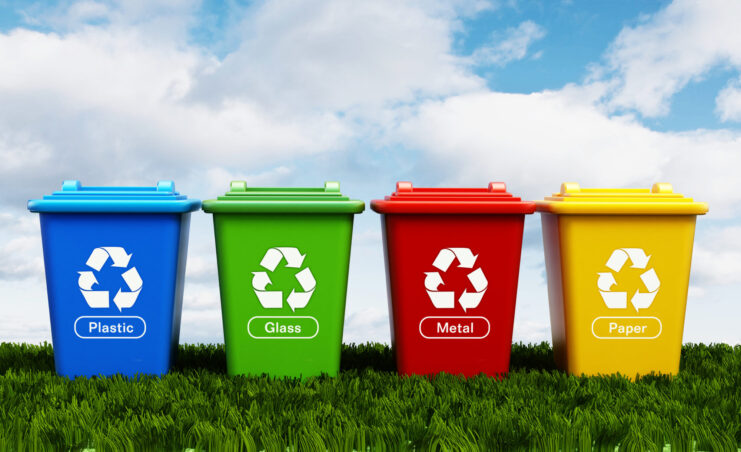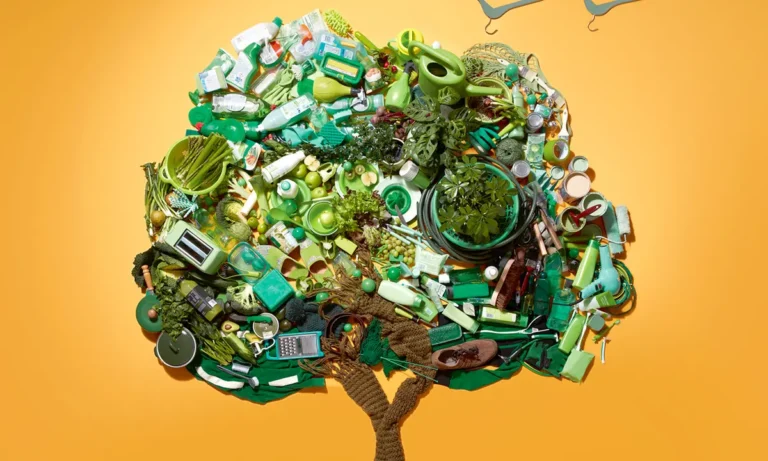Knowing how your life impacts other humans, animals, and the environment is important. And that is basically the concept behind an eco-friendly lifestyle. An eco-friendly lifestyle is defined as a way of life in which decisions are made with the potential impact on the environment in mind.
It is critical to adopt an eco-friendly lifestyle in order to keep our planet cleaner, greener, and livable for not just us but other living beings. Since humans are the primary cause of environmental disruption, it is critical that we take serious steps to mitigate the damage we have caused. In this case, making small changes as individuals can make a big difference.
Here are some ways you can live an eco-friendly lifestyle and help to improve our planet.
Reduce Waste

The first step toward living an eco-friendly lifestyle is to reduce waste. If we are not being mindful of our daily routines, we could be using a lot of plastic and generating a lot of solid waste, which ends up in landfills and pollutes the environment.
To make some positive changes in your life, use reusable items such as reusable bags, reusable water bottles, and other similar products instead of single-use items. Be mindful of your purchases and buy in bulk to avoid producing a lot of packaging waste.
A word of advice: There are some apps that can assist you in reducing waste. These apps remind you of your garbage disposal days, assist in reducing paper consumption, and help you in hiring recyclers and waste managers. Among these apps are IRecycle, RecycleNation, the Waste Management App, and Gimme 5, to name a few. Simply make sure you have a reliable internet connection at home in order to actively benefit from these apps and others. If you are looking for a superfast connection with some affordable plans and deals, you should look into Windstream Internet as the provider is known for its reliable service in over 18 states.
Conserve Energy
The majority of energy produced is powered by fossil fuels, which emit toxic gases into the atmosphere and contribute to global warming. Global warming has become a very serious issue that threatens the lives of not only humans but also other innocent life on the planet. As a result, it is critical that we conserve energy on an individual level.
Many of our unchecked daily habits can be harmful to the environment, such as leaving electronics plugged in even when we are not using them, driving even to nearby coffee shops, and leaving lights on when not in rooms.
We can conserve energy and save the planet by changing these above habits; being more mindful, using energy-efficient light bulbs and appliances, unplugging electronics when not in use, and using public transport.
Sustainable Eating

Sustainable eating is another important aspect of an eco-friendly lifestyle. Reduce your meat and dairy consumption, choose local, seasonal, and organic produce, reduce food waste by planning meals and using leftovers, and grow your own produce, even on a small scale like your own garden, to incorporate sustainable eating into your life.
If you’re wondering how it all might help the environment, consider the following statistics: According to a report presented at a European Parliament event, livestock production accounts for roughly 80% of total ammonia, nitrate, and nitrous oxide emissions from EU agriculture.
While meat and dairy are essential sources of vital nutrients, you can rely on alternative and organic methods, and reduce animal-based food consumption in favor of more plant-based alternatives, to help the environment. It all comes down to doing some research and finding the right alternatives that will provide you with the necessary nutrients while causing no harm to the environment.
Clothing and Textiles
Clothing is another important aspect of our daily lives which we can make more eco-friendly. There are various ways you can make your clothing more environmentally friendly:
Choose eco-friendly fabrics
There are various types of fabrics, and it is critical to select the more environmentally friendly ones for yourself. Polyester, acrylic, rayon, nylon, and conventional cotton are the least environmentally friendly fabrics, whereas organic cotton, bamboo, and fabrics made from recycled materials are more environmentally friendly. Choose manufacturers who are known for their environmentally friendly practices. Among them are Vetta Capsule, The Classic T-shirt Company, Vitamin A, Groceries apparel, Harvest & Mill, LA Relaxed, and Amour Vert.
Avoid fast-fashion
We understand that many people desire to buy every new trending clothing item and fill their closets to the brim, but this only harms the environment. Instead of purchasing more inexpensive clothing items, choose durable and timeless clothing and staples and create outfits by mixing and matching.
Repair or alter garments
Instead of throwing away that pair of jeans that are a little too big for you or that sweater with a few holes, try repairing or altering them. Instead of buying new clothes, use your old ones until they are worn out.
Donate or recycle unwanted clothing
If you have outgrown or no longer require some of your clothing items, consider donating them to someone who does. That would benefit someone and protect the environment.
Wrap-Up

The ideal way of living is one that is not only better for us but also for the environment. And that is what eco-friendly living entails. Small changes in your daily behaviors can make a big difference in saving the world and making Earth habitable for all life forms.
Related Posts:
- Eco-Friendly Living: How Solar Power Enhances Your…
- 20 US Cities With Highest Violent Crime Rates 2024:…
- What Is the Difference Between Olive Oil and Extra…
- Kentucky's Big Cats: A Look at the 2 Different Types…
- How To Make A Bluetooth Speaker Louder? Unleash the…
- How to Make Your Cheerleading Squad Look More…







